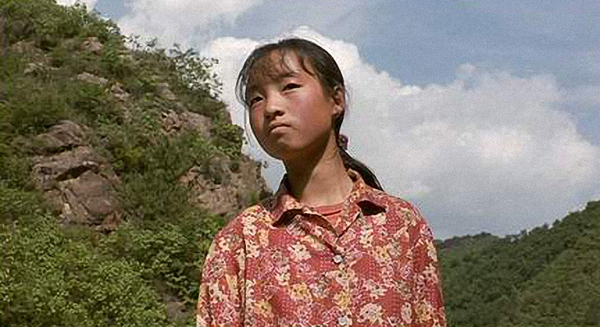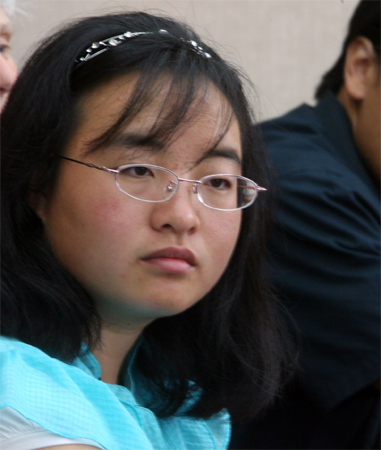Profiles
'That movie changed my life'
By Chen Nan (China Daily)
Updated: 2010-07-21 06:31
 |
Large Medium Small |
BEIJING - The last time Wei Minzhi, the leading actress in Zhang Yimou's award-winning film Not One Less (1999), attracted extensive media attention was in February 2004.
 |
Her attempt to take the entrance examination for the school of directing at Beijing Film Academy drew doubts from many. Even director Zhang Yimou reportedly said that Wei was not the right fit to be an actress.
She failed in the second round with Beijing Film Academy as many had expected.
Wei knew that she was "not as beautiful as many actresses and her body not as good". But she couldn't forget her one intimate experience with movies as an actress in Zhang's film.
 Wei Minzhi, who was the leading actress in Zhang Yimou’s award-winning film Not One Less (1999). [China Daily] |
Six years later, her dream has come true.
Over the past three weeks, the 25-year-old has directed her autobiographical documentary film in her hometown in Hebei province, and Xi'an, capital of Shaanxi province, where she spent two years learning film editing and producing at Xi'an International Studies University before moving to Hawaii for another four years of study.
"My life experience has been kind of interesting, and very appropriate for a documentary film," Wei said. "But I still feel a little awkward whenever I read the name of the film. I am really a very common person even though in many people's eyes, my life looks indeed like a miracle."
Wei still remembers the Saturday in 1998 when she was spotted by Zhang's film crew for Not One Less. Since it was a Saturday, there was no school, so 13-year-old Wei and her twin sister were playing in the street with their friends.
The youngsters were curious to know what the people who got out of the car were doing. They soon found out. Although her twin was too nervous to sing, Wei sang and danced for the man behind the camera, whom she later knew was Director Zhang Yimou.
When asked by a woman in the film crew if she would like to be an actress in a movie, she said "yes" and wrote her name down so the woman would not forget her.
Now as a director herself, Wei knows that is where her autobiographical documentary film Miracle's Daughter will start.
"That movie changed my life," she said, admitting that without that film, she would have had to leave school at an early age, tending sheep and then getting married like any other girl in her village.
But because of her role in the movie, Wei became very famous in China and was invited to study in an elite high school in Hebei's capital Shijiazhuang. When she finished high school in 2004, she was offered a scholarship to attend Xi'an International Studies University.
During her first year there as a film student, she had many opportunities to talk with visitors from other countries. One was Peter (Yeekong) Chan, a professor in the Brigham Young University Hawaii School of Education.
At that time, Chan came to China to learn more about the educational idea of "not one child to be left behind". He thought of the film Not One Less. So he looked for Wei.
"He asked me if I had the chance to study in the United States, what would I like to do after graduation," Wei recalled. "I told him I'd like to become a film director and return to my home country shooting films about poor children in the mountains. They need the society's attention and support."
Chan was deeply impressed, seeing her exactly like the leading role she played in the film - persistent and romantic. He encouraged Minzhi to learn English and come to BYU-Hawaii to study.
"I didn't believe that could really happen," Wei said during a recent studio interview with China Central Television. "I was 19 years old and had no money to study in another country."
But in April 2006, Wei arrived at the campus of BYU-Hawaii, where she took classes and worked in the campus media production studio, learning film editing and production.
Now upon graduation, she is realizing the promise she made six years ago to Professor Chan. "I know some people will question my ability to be a director. But be there good or bad comments, I take them with gratitude now that they remember my name and care about me," Wei said.
As for her documentary, she hopes that it will serve as an encouragement "for those who have a dream in their hearts".
"I want to say that as long as you are brave and never give up, you can reach your goal," she said.